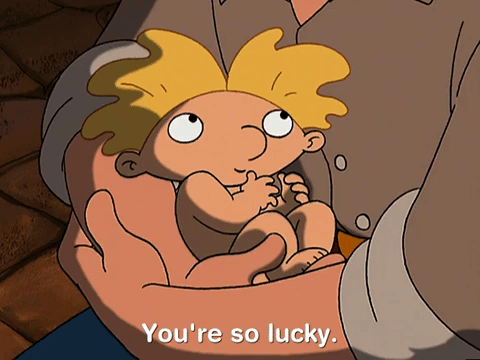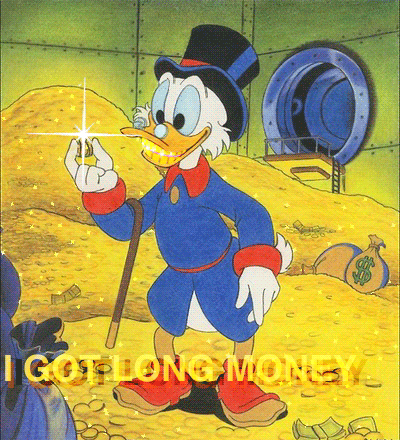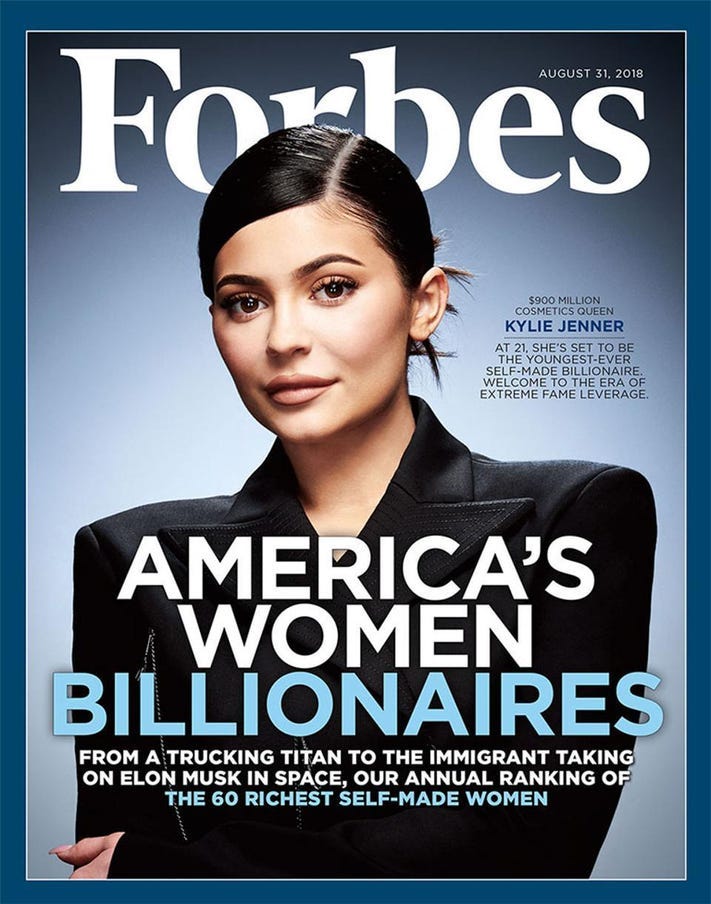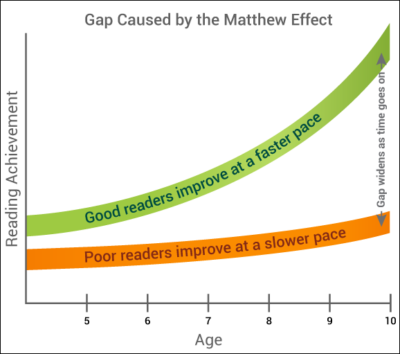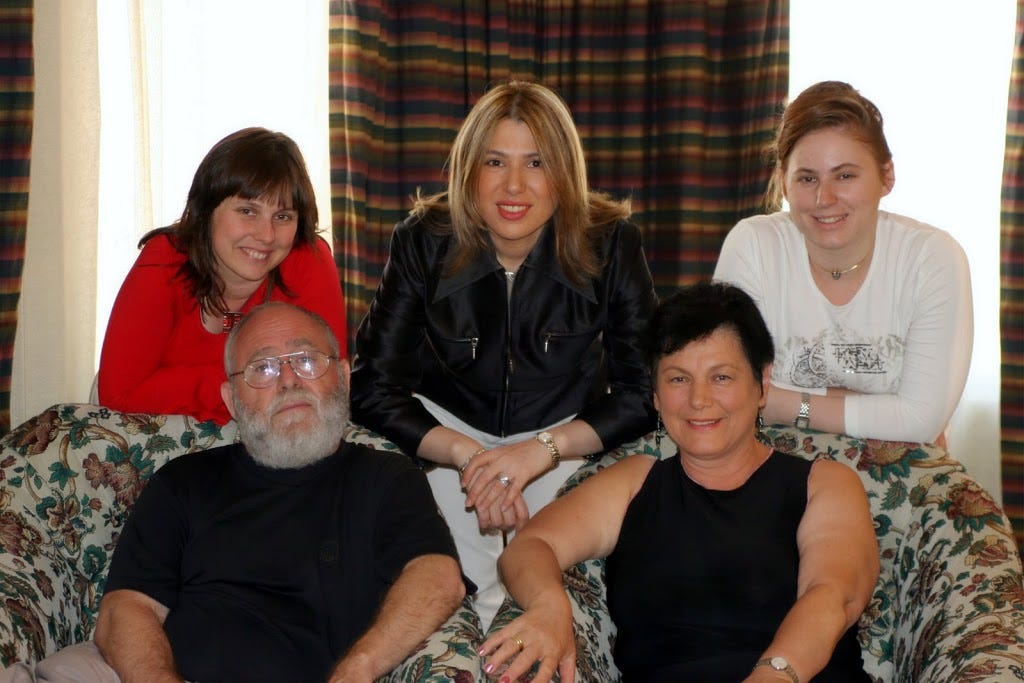Did the fact that Abdul Lateef Jandali grew up in Mountain View (California) have anything to do with toddlers who try to zoom into pictures in aanalogue books just by using their fingers?
Yes, it does.
Abdul Lateef Jandali was born out of wedlock to Joanne Carole Schieble and Abdul Fattah Jandali. Joanne decided to give the child up for adoption because her parents were opposed to this marriage. She chose a ‘Catholic, well-educated, and wealthy’ couple, but they backed out at the last minute. Her compromise choices were Paul and Clara – neither wealthy nor college educated. She agreed to give the child to them only after they promised to save up for his college.
This child became Steve Jobs.
Multiple what-ifs could have derailed Steve Jobs’ early years. What-if Joanne had decided to raise him as a single mother? What-if the earlier couple had not backed out? What-if Joanne had not made his adoptive parents promise to send him to college? What-if Paul and Clara had not lived in Mountain View, right next to Stanford’s engineering talent? What-if Steve Wozniak had not been Steve Jobs’ neighbor?

Three things that are completely out of our control – our gender, where we’re born, and to whom – have an outsized influence on not only our early years, but also our entire life trajectory.A straight white man born to upper middle-class parents in San Francisco has won the luckttery of life. He has an above-average probability of going to Berkley or Stanford and making his first million before he completes 30 circles around the sun.
Today, we look at lucky beginnings – how the luckier our start, the luckier we get. We also look at how we can engineer luck and sometimes use bad luck to propel our self forward.
1. Privileges of good luck and misfortunes of bad luck compound over time
Well begun is half done.
Wealth attracts wealth.
The rich get richer and the poor get poorer.
These are not just cliches but descriptors of The Matthew Effect. The Matthew Effect (also called The Principle of Cumulative Advantage) says that the more financial and social capital we start with, the easier it becomes to accumulate even more and vice versa.
The Matthew Effect is credited to Robert K. Merton, a sociologist at Columbia. He named this effect after a passage in the Gospel of Matthew: “For everyone who has, will be given more, and he will have an abundance. Whoever does not have, even what he has will be taken from him.”
1.1 Timing of starts can give higher earnings, regardless of skill and talent.
Timing of graduation determines earnings over our lifetime. Lisa Kahn, an economist at Yale followed graduates over 20 years and found that timing of graduation impacts earnings over an entire lifetime. In her study, ‘unlucky grads’ (students graduating in a recessionary year) earned less than ‘lucky grads’ (who graduated during economic boom). Not just that, ‘unlucky grads’ were never able to bridge the earning gap.
When you compare the unluckiest (the 1980 and 1981 grads) to the luckiest (1988 grads) the earnings gap, almost 20 years later, is 10%.
—Lisa Kahn.
1.2 The Matthew Effect is the opposite of meritocracy and is visible in the social media space too.
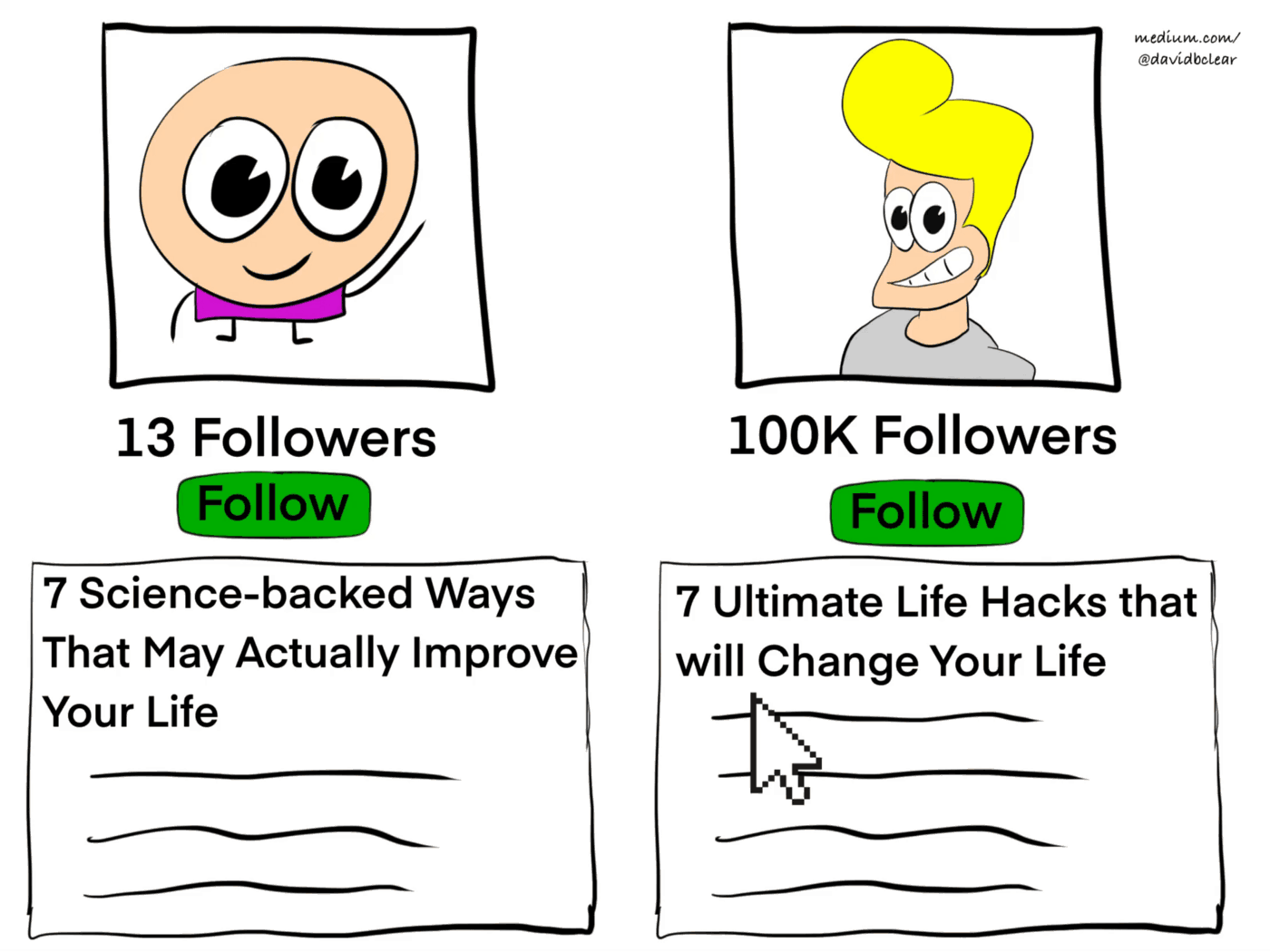
A study has found that those ecommerce product reviews that are posted early get more ‘helpful’ votes just because there aren’t enough reviews for comparison. These ‘helpful’ votes then go on to attract more readers and even more votes. Later reviews, even though they might be more helpful, get overlooked.
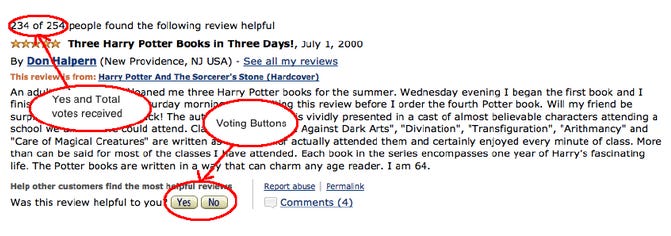
1.3 Early success becomes self-perpetuating for two reasons.
One, we want to back a winning horse because we want to maximize our investment. That’s why our systems are rigged to favor the rich and famous. The wealthy find it easier to get loans, make friends and get first right of refusal to opportunities.
Combine the good fortune of birth with hard work and you have career gold.
Forbes has declared Kylie Jenner to be the youngest ‘self-made’ billionaire. I do not doubt that she is very hard-working. She also may be talented and a savvy businesswoman, but she has had a lot of help from the privilege of being a Kardashian in building her cosmetic empire.
Two, we are sponges in our early years. If our upbringing offers the right environment, we are better able to absorb the right skills and get a head start in honing our talents.
One proven example of this is the importance of early reading habits. It has been found that students who start reading early and also enjoy it, kick start a virtuous cycle of learning. Over time, the gap in learning vs peers who are not inclined to read, keep widening.
This concept of early learning works across fields. Chess for example.
The Polgár sisters prove that greatness can be engineered from the early years.
László and Klara Polgár, Hungarian educators and psychologists wanted to prove that geniuses can be made through thoughtful and early training. So they started training their three daughters –Zsuzsa, Zsófia, and Judit in chess since they were toddlers. All three are amongst the top ten female players in the world. Judit became the youngest ever grandmaster at 15 (after beating male players) While Zsuzsa became the Women’s World Chess Champion.
Does this mean if we are not born with the proverbial silver spoon we are doomed?
Not so. The good news is that lucky starts can also be engineered.
2. We can engineer luck by feeling lucky.
“When you appreciate the good, the good appreciates.”
— Dr Tal Ben-Shahar
2.1 Luck can be a state of mind. If we feel lucky, we are more relaxed, make friends and spot opportunities more easily.
And obviously, more opportunities = more luck.
Dr Richard Wiseman (Hertfordshire University) asked people to self-identify into two groups – those who felt ‘lucky’ and those who did not. He gave both groups a newspaper and asked them to count the number of photographs. The ‘unlucky’ people took about two minutes to count the photographs, while the ‘lucky’ people gave the answer within seconds.
That’s because on the second page, Dr Wiseman had put a big bold message: “Stop counting. There are 43 photographs in this newspaper.” People who felt ‘lucky’ did not miss the forest for the trees. They were ready to be helped!
Dr Wiseman ran a second experiment. Again, one person self-identified as ‘lucky’, and another as ‘unlucky’. Both took separate trips to a coffee shop. The researchers had planted a £5 note on the pavement outside the cafe and an actor posing as a successful businessman inside. The ‘lucky’ person spotted the money and also had an interesting chat with the ‘businessman’. The ‘unlucky’ person failed to notice the money or the businessman.
When asked how their day had been, the ‘lucky’ person reported having had a great day – found money and made a new friend! While the ‘unlucky’ person reported an uneventful day. Only the ‘lucky’ person was able to ‘see’ opportunities and so ‘got luckier’.
‘Open-minded’ is the best state of mind to get lucky. On January 17, 1977, Gary Gilmore, a murderer, was executed by the firing squad. His final words were – ‘Let’s do it’. Eleven years later, Dan Wieden happened to read this in a newspaper. He used this line as ‘Just Do It’ for the Nike campaign he was working on.
2.2 One way to feel lucky is to focus on the gifts we do have, over what we don’t.
“Where attention goes, energy flows”.
—Dr Joe Dispenza
All of us have some gifts and resources. Only if we choose to work with them, can we create luck for ourselves.
A good contrast is that of the oil-rich Gulf countries and Singapore. While the Gulf has been blessed with oil reserves from the start, Singapore became independent in 1965 and faced doom and gloom of unemployment, a housing crisis and zero natural resources. Just 30 years later, it became like the New York of S.E.Asia. Singapore gifted itself a professionally run government led by Lee Kuan Yew. We all know that they innovated a unique model that combines capitalism and socialism to become the most attractive destination for MNCs and startup investments.
Kit Kat leveraged its cultural windfall in Japan: Kit Kat in Japanese is pronounced “kitto katto” which sounds very similar to the Japanese phrase “kitto katsu”, which translates to “you will surely win”.
The brand has become synonymous with good luck. Japanese parents gift Kit Kats to their children before an exam as a good luck charm. Today, Japan is one of the top markets worldwide for Kit Kat.
3. If bad luck pisses us off enough, we can (sometimes) turn things around.
Human ingenuity makes sure there are exceptions to all rules. We can channel negative emotions – anger, frustration, or shame to overturn bad luck.
Micky Mouse could have been Oswald Rabbit. Walt Disney’s first cartoon creation was Oswald the Lucky Rabbit. Since Disney was employed by Universal Studios when he created Oswald, they retained the copyright in a dispute. Disney was angry, but creator that he was, he morphed Oswald into Mickey Mouse. Today, Mickey is an icon. But Oswald, without Disney’s magic touch, is not even an obscure memory.
The Nobel Prize was created to assuage shame. In 1888, Alfred Nobel’s brother, Ludwig, died. A newspaper mistakenly thought it was Alfred who had died. It published a scathing obituary, calling him “Merchant of Death”. It criticized his inventions (dynamite), calling him, “the wealthiest vagabond in Europe who had become rich by finding ways to mutilate and kill innocents”. Nobel was blessed with the curse of witnessing his eulogy. He decided to rewrite history by changing his future. By 1893, he had decided to give away 94% of his wealth to set up the Nobel Foundation.
An unfortunate incident led to the birth of RedBus. Phanindra Sama could not get back home in time for Diwali in 2005. He went to nine different bus operators, none of them had any tickets left. He realized the bus ticket booking process is decentralized, offline and messy. That’s when he founded RedBus to make bus ticket booking online, transparent and convenient.
4. Two people had won the luckttery, only one became a billionaire.
Gary Kildall could have been Bill Gates. Gary headed Digital Research Services and built a PC operating system first (CP/M-86). In 1980, IBM approached Bill Gates and asked him to build an operating system for their computers. Bill Gates did not have an OS ready and so sent them to meet Gary instead. Gary did not think the deal was valuable and sent IBM away. IBM went back to Bill Gates, who by that time had bought CP/M-86. Bill Gates tweaked it for IBM, named it PC-DOS, negotiated a licensing deal instead of outright sale and started shipping it.
Gary realized he had made a mistake and this time he approached IBM. IBM agreed to offer both operating systems alongside their PCs. But they priced PC-DOS at $40 and CP/M-86 at $240. Obviously the cheaper one sold more and made Microsoft what it is today.
Gary Kildall and Bill Gates both had won the birth luckttery. Gary was born in Seattle to second-generation immigrant parents who sent him to college and then for a PhD. The Navy posted him in Monterey (California), an hour from Silicon Valley. There he discovered computers and never looked back. Bill Gates was also born in Seattle, into an upper-middle-class American family with resources to send him to private school. His school happened to have a computer (very rare in the 1960s-70s), upon which he learnt programming.
Why was Gates able to ‘see’ the possibilities in the IBM deal and no Kildall? When asked how much of his success was due to luck, Bill Gates said,
“Our timing in setting up the first software company aimed at personal computers was essential to our success. The timing wasn’t entirely luck but without great luck it wouldn’t have happened”.
—Bill Gates
4. Is there a skill-luck continuum?
I used to discount the impact of luck and gave disproportionate weight to free will and skill. In my article on Serendipity (Dec ‘20), I had said that we can actively design serendipity into our lives.
All that is true. There is a Sanskrit Shloka that says, ‘just like a chariot cannot run on one wheel, luck without effort cannot complete a task’.
But today, I have come half-way and have to acknowledge the invisible hand of luck. Everything else being equal, when we have luck on our side, life feels just a little bit more effortless. It is also when lady luck is smiling at us, that we are able to ‘see’ opportunities that others overlook.
So how do we think about the skill-luck continuum? Are there situations where skill weighs more than luck and vice versa? In this age of social media, has marketing been reduced to a race to get ‘likes’ by posting content first and frequently? What is the role of skill in business, sports or stock markets?
That’s for next time.

